One
Portland and Seattle are in the Pacific Northwest, a region known for its rain and cool temperatures. Until recently, the all-time high temperature in Portland was 107 degrees, a record set back in 1965. On Saturday, June 26th, 2021 — a little over a month ago — the city set a new record of 108 degrees. The next day — a Sunday — Portland broke its all-time record yet again with an astounding 112 degrees. On Monday, June 28th, the city literally blew that number away when it reached a hard-to-fathom 116 degrees. The average high temperature in Portland, Oregon at the end of June is around 76 degrees.
The fact that Portland set a new record high temperature on three consecutive days is certainly newsworthy. The fact that this happened at the end of June — a month not normally associated with high temperatures in Oregon — is more so. The fact that the new record exceeded the old 1965 record by 9 degrees and topped the date’s average temperature by 40 degrees is astounding. And when we consider that Seattle also set a new high temperature record of 108 degrees, and that Salem, which is 45 miles south of Portland, topped out at 117 degrees … well, it’s probably not all that surprising to learn that a subsequent headline in the Seattle Times proclaimed: “Crushing heat wave in Pacific Northwest and Canada cooked shellfish alive by the millions.”
Plus One
I’ve always felt that folks who spend a lot of time on the water tend to be more ‘aware’ than the general public. Awareness — the ability to see what’s happening around us, and to pay attention and react appropriately — is the kind of skill that separates folks who are in tune with the natural world from people who wander through the outdoors without a clue. Talented anglers almost always display more awareness than their less successful brethren. When it comes to fly fishing, those of us who see the world as it actually exists, and respond accordingly, have a huge advantage over everyone else.
It’s hard to believe that any fly fisher — or at least any fly fisher who takes the sport seriously — has missed the signs and symptoms of our rapidly heating planet.
Equals Two
More Like This
No one should believe that anthropogenic (human-caused) climate change is real just because one region of our country experienced catastrophically dystopian high temperatures back in June. That would be silly. At the same time, no angler worthy of the name should look at the mountains of empirical evidence — the ongoing run of record high global temperatures, and the heat waves from hell, and the supercharged storms, and the massive floods, and the rising sea levels, and the dying forests, and historic droughts, and the explosive wildfires, and the wave after wave of unhealthy smoke filling our skies and our lungs — and dismiss the reality we face. Not after listening to scientists, who have been shouting from the rooftops for decades hoping to get our attention.
Here’s the God’s honest truth. When our personal experiences match up exactly with the science — in other words, when the scientific community confirms the empirical evidence we’re seeing with our own eyes — then it’s time to set wishes and preconceptions aside and face up to the facts.
An Aside
A new scientific study came out just the other day which said it’s 99% certain humans are causing our planet to heat up. As nice as that is, and as relevant as it is, it’s entirely unnecessary. We know what’s happening. It’s been clear for a long, long time and anyone who tells you that they’ve been waiting for more evidence, or more scientific certitude, is being disingenuous. Scientists have understood the greenhouse effect since the 1800s. The basic physics of climate change has been obvious for decades. When we pump vast quantities of CO2 into the atmosphere, our global temperatures rise. It really is that simple.
Not-So-Fun Fact
Did you know that human activities inject more than 40 billion tons of CO2 into the atmosphere each and every year. 40 billion tons. Ponder on that for just a bit.
Moving forward
People have been telling me for almost a decade now that we can’t continue to focus on climate deniers. Friends, both old and new, have tried to convince me it’s past time to stop worrying about the Dunning-Kruger brigade. I’ve heard over and over that we have to build a coalition of American citizens — including anglers — who accept our current reality and are willing to address the myriad challenges we face. So with that in mind, I won’t try to convince those who’d rather not to be convinced. I’ll simply lay out the facts in black & white.
We are at a moment of inflection; the proverbial fork in the road. If we act on climate change now, we have a chance to avoid the worst of the climate impacts our scientists have been warning about. If we don’t act now, our chances of doing so drop precipitously.
We also need to understand that our personal actions are not enough. While it’s better if we, as individuals, put less CO2 into the air, our personal carbon footprints are not really going to make much of a difference in the long run. Instead, we need Congress to take action. And right now, at this very moment, Congress is deciding what to do about climate.
Without getting too far into the weeds, here’s what you need to understand. The U.S. Senate is currently working on a budget reconciliation bill that could potentially lead to real climate action. Whether that action is enough by itself is irrelevant. The important thing — the vital thing — is that we create a strong foundation of climate policy that we can build on going forward. If we do so now, there’s hope. If we fail, there’s considerably less.
Please call your senators today and tell them to act on climate in the upcoming reconciliation bill. You can also tell them that we need a strong clean electricity standard and that it’s time to transition to electric vehicles and renewable energy. The important thing, though, is that you call Congress today and let them know where you stand.
You can reach the U.S. Senate at (202) 224-3121. For more info, click here.







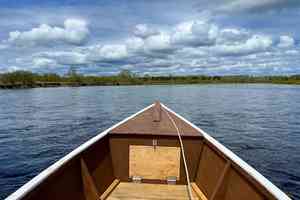




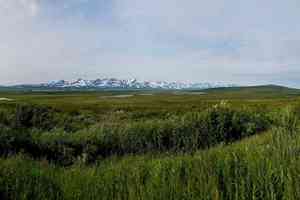

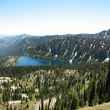












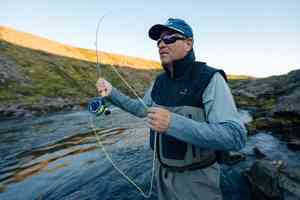



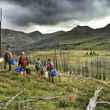
Comments